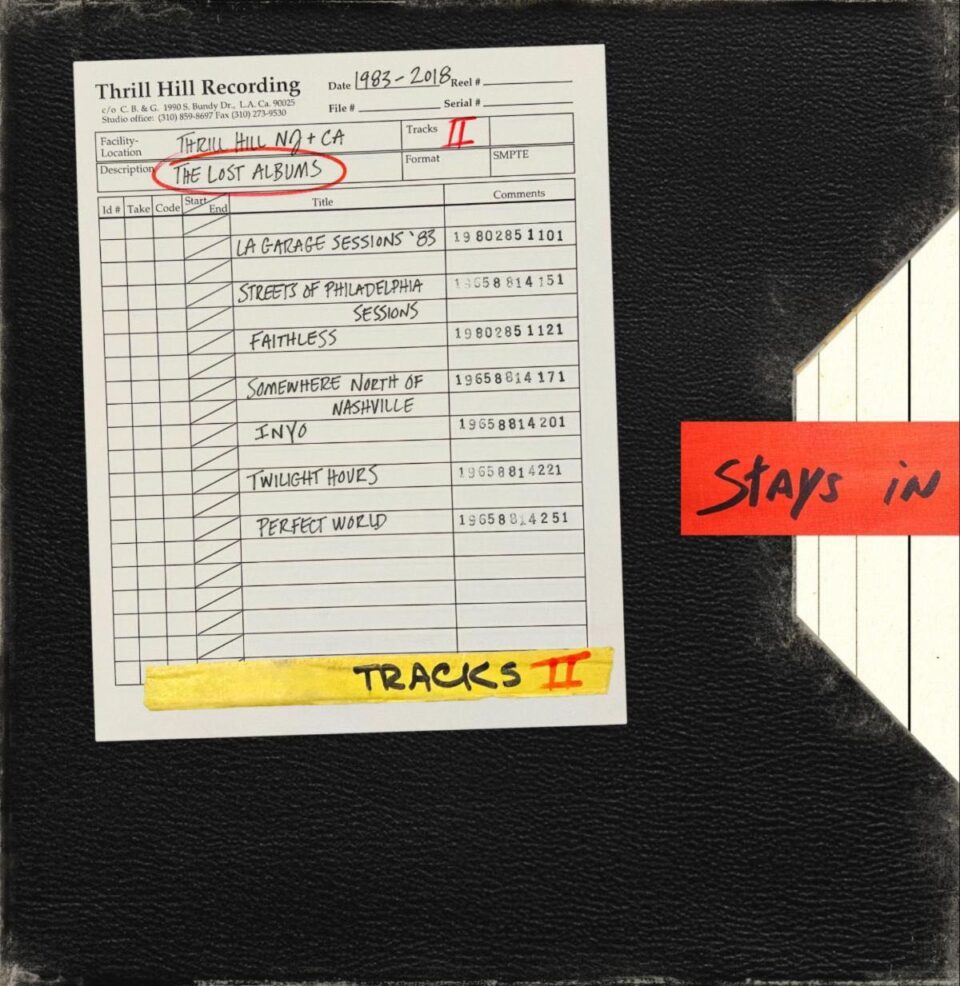For a pre-teen living in suburban Philadelphia in 2003, Fountains of Wayne was, momentarily, a Big Deal. Of course, when I say Fountains of Wayne, what I really mean is “Stacy’s Mom,” which was everywhere. Fountains of Wayne themselves were a mystery to me, simply appearing out of the clear blue sky with one of the goofiest hits I’d ever heard. Of course, that wasn’t what really happened—I knew nothing of their two previous albums, including the excellent Utopia Parkway, or of their late bassist and songwriter Adam Schlesinger’s Oscar-nominated contribution to Tom Hanks’ 1997 film That Thing You Do!, not to mention their dozens of equally catchy songs littered throughout their catalogue.
For this blind spot, I offer a simple defense; Fountains of Wayne aren’t cool. Catchy, fun, a little weird, decidedly unique, sure, but definitely not cool. That might not matter as much now, but you can bet it mattered then, especially to a pre-teen, rec-center dancing, hair-spiking, hopeless grasper at all things cool. I wanted edge, I wanted noise, I wanted, well…I’m not entirely sure what I wanted, but Fountains of Wanye’s kitschy pop wasn’t it. Now, as a jaded skeptic, I not only long for the sentimentality and pure serotonin burst that Fountains of Wayne provides, but see it for the trojan horse that it often is. Welcome Interstate Managers, which is getting a fresh vinyl reissue thanks to Real Gone Music, is sticky and sweet power pop at its most impeccably crafted, but beneath the confection is a record that, rather than embrace too-cool detachment, explores the wayward ennui which typified the decidedly uncool, yet endlessly endearing pockets of the early 2000s.
I didn’t know this at the time, but when I first heard Fountains of Wayne I was only a few years from being a character in a Fountains of Wayne song. There have been a lot of bands who’ve tried, but few have truly captured the listless drifting, hopeful yearning, and teenage romanticism of excessively boring, culturally homogenized suburban life. Which, as I look back, is perhaps why Fountains of Wayne seemed to resonate better with middle-aged critics than most of my peers. The characters that songwriters Schlesinger and Chris Collingswood write aren’t cool just like I wasn’t cool, the difference being I thought I was cool—or, at least, I desperately needed to be.
For me, it was bands like Pavement and Arcade Fire, themselves rooted in suburbia, that were striking a more significant chord, not because I saw myself in their noodly, endless well of sarcasm or bombastic, bottomless depth, but because I wanted—hell, needed—them to form my pathetic slab of teenage clay into the hip young adult I longed to become. Every teenager wants to be Slanted and Enchanted but the fact is, most of us were closer to the characters who pop up again and again throughout Fountains of Wayne’s catalogue, from the unrequited lovers, tattoo getters, and laser-show goers of 1999’s Utopia Parkway to the family gathered around the widescreen TV in Welcome Interstate Managers’s “All Kinds of Time.”
Welcome Interstate Managers is sticky and sweet power pop at its most impeccably crafted, but beneath the confection is a record that, rather than embrace too-cool detachment, explores the wayward ennui which typified the decidedly uncool, yet endlessly endearing pockets of the early 2000s.
In this regard, Fountains of Wayne stuck out not only in my own warped adolescent mind but in the music landscape writ large circa 2003. Categorizing their brand of power pop is a slippery task. Welcome Interstate Managers arrived amidst what now can be referred to at the Meet Me in the Bathroom era, when the critical eye was cast toward more toward slick, big-city rock from the likes of The Strokes and The White Stripes, whose brand of emotionally reserved post-punk was nothing like the sweet, tight pop songs coming from Fountains of Wayne. That being said, they might have less to do with the emerging indie rock of the time, which was split between the sensitive, Smith’s-inspired era of wistful and poetic restraint on one side and avant-garde experimentalism on the other. Fountains of Wayne were never quite sexy or weird enough to be a band in which anyone would attribute any grand, sweeping statements of “Next Big Thing,” but they might have done their thing better than anyone else.
The Welcome Interstate Managers reissue boasts 17 songs across its hour-long runtime, making for an absolute smorgasbord of tightly wound pop choruses, each more Gorilla-Glue sticky than the next. No one could make the line “And if you ever get back to Hackensack, I’ll be here for you” sounds like a goddamn Beatles for Sale B-side save a songwriter who was already tasked with writing a song for a movie about the power of an indelible ’60s pop hit. What’s more impressive is their ability to bounce from this kind of lovelorn balladry to their more riffy rock songs like the slightly silly, yet undeniably propulsive ode to cordless phones on “Little Red Light.” Hell, even the much-maligned and admittedly goofy country-western ditty “Hung Up on You” is far better than it has any right to be. Fountains of Wayne may have lacked the sophisticated aloofness and groundbreaking “innovation” of the bands of their generations but the fact is, they make up for it with the sheer undeniability of their bops.
Perhaps it’s precisely because the songs are so damned good that you almost miss what’s really going on underneath Welcome Interstate Managers’ polished sheen. While the record undoubtedly borrows the themes of young-adult sorrow, confusion, and excitement from Utopia Parkway—which was itself a more focused, quasi-concept album—it does so with a much more cynical eye, often focusing on the losses rather than the wins and, more importantly, showing the exhaustion at being involved in the game at all. The opening lines of what might be the record’s best song, “Mexican Wine,” are an absurdist, rhyme-littered vignette ending on the closest thing Fountains of Wayne ever came to straight anti-capitalist vitriol: “He was killed by a cellular phone explosion, they scattered his ashes across the ocean / The water was used to make baby lotion, the wheels or promotion were set into motion.” Things never get all that angry, of course, but only because the trusty distraction of the song’s titular elixir is always close at hand, as if the chorus is the necessary escape from self-seriousness for not only the protagonist, but the band and listener as well.
This theme of escape, or lack thereof, comes up again and again throughout Welcome Interstate Managers. In “Hey Julie,” a whimsical, almost childlike jingle, we see a man placing all his hopes in the girl he loves, making her the carrot at the end of a day of countless sticks in the form of his “mean little man” of a boss, endless facts and figures, and scores of pointless phone calls. “Bright Future in Sales” once again uses alcohol, but this time the protagonist’s penchant for several—seven at the office party alone—scotch and sodas is offered as the prison that needs escaping because, as he puts it, “I got a new computer and a bright future in sales.” Again, this is a power-pop song, with driving chords, peppy drums, and even a pretty sick guitar solo, all about a man with what appears to be a pretty serious drinking problem. These aren’t the starry-eyed, young heroes of songs like “Prom Theme” and “Red Dragon Tattoo,” but a slew of characters whose experience has dulled their enthusiasm or, in some cases, sharpened it into a spear.
While the record undoubtedly borrows the themes of young-adult sorrow, confusion, and excitement from Utopia Parkway, it does so with a much more cynical eye, often focusing on the losses rather than the wins and, more importantly, showing the exhaustion at being involved in the game at all.
For Schlesinger and Collingwood, this kind of weathered cynicism didn’t take a great deal of imagination. After all, Collingwood was himself working as a computer programmer at American Express—presumably for a boss with a soup-stained tie and spray-on tan—prior to the band’s years with Atlantic Records. It was only after the band was unceremoniously dropped by the label following the commercially disappointing Utopia Parkway that this mundane reality might have seemed like the more realistic future for Collingwood and company. “He just sort of felt that we worked for a really long time and it didn’t really add up to anything,” Schlesinger told American Songwriter years later while discussing the difficulties the band had when setting out to write Welcome Interstate Managers. As it turns out, working really hard with nothing to show for it is an awfully relatable phenomenon, and one that the band was able to inject into their varied cast of hopeless romantics and stifled dreamers.
It appears this vinyl reissue of Welcome Interstate Managers is, more than anything, an attempt at posterity. This is, after all, a 16-song record in its own right, so rather than stuff it with B-sides, rarities, or outtakes, we only really get the “Stacy’s Mom” B-side, the punchy, garage-rock single “Elevator Up,” in the way of additional materials. Which is fine, especially given the fact that this is the first time the record’s been reissued since its original run. The timing is, unfortunately, rather appropriate. I, for one, must admit my reevaluation of a band I hadn’t thought about in more than a decade only happened because of the death of Adam Schlesinger back in April 2020. It’s unfortunate when it takes something tragic to spark a renewed interest, but to see how many musicians this little power-pop band was able to touch was inspiring nonetheless. Perhaps it’s a lesson: cool may come and go, but the power of great songs is undeniable. FL









